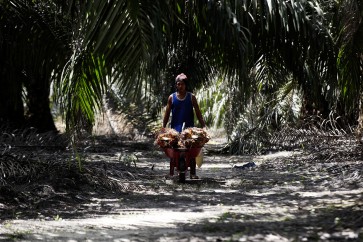Popular Reads
Top Results
Can't find what you're looking for?
View all search resultsPopular Reads
Top Results
Can't find what you're looking for?
View all search resultsNGOs, firms need constructive engagement
Indonesian palm oil and its derivatives have been under the scrutiny of international environmentalists since the early 2000s.
Change text size
Gift Premium Articles
to Anyone
T
he emotional outbursts of the Indonesian Palm Oil Association (GAPKI) against international environmental NGOs, though regrettably smacking of an expression of xenophobia, are the understandable explosion of frustrations over what plantation companies see as a perpetual foreign attack on palm oil, currently one of the largest foreign exchange earners in the country.
The editorial published on the GAPKI website on the 72nd independence anniversary last month, which urges the government to free palm oil from “colonial attacks” by international NGOs, reflects the industry’s wrath over what they consider to be a complete lack of appreciation for improvements already made in sustainable palm oil management over the past ten years.
Indonesian palm oil and its derivatives have been under the scrutiny of international environmentalists since the early 2000s after the widespread forest fire in 1997 and the astronomical expansion of oil palm plantations since the 1990s, which caused massive deforestation.
Lately, several NGOs also have been campaigning to virtually coerce overseas industrial users or consumers to boycott Indonesian paper-grade pulp and dissolving pulp in a protest against the environmentally and socially irresponsible practices they allege in pulp estate management.


















